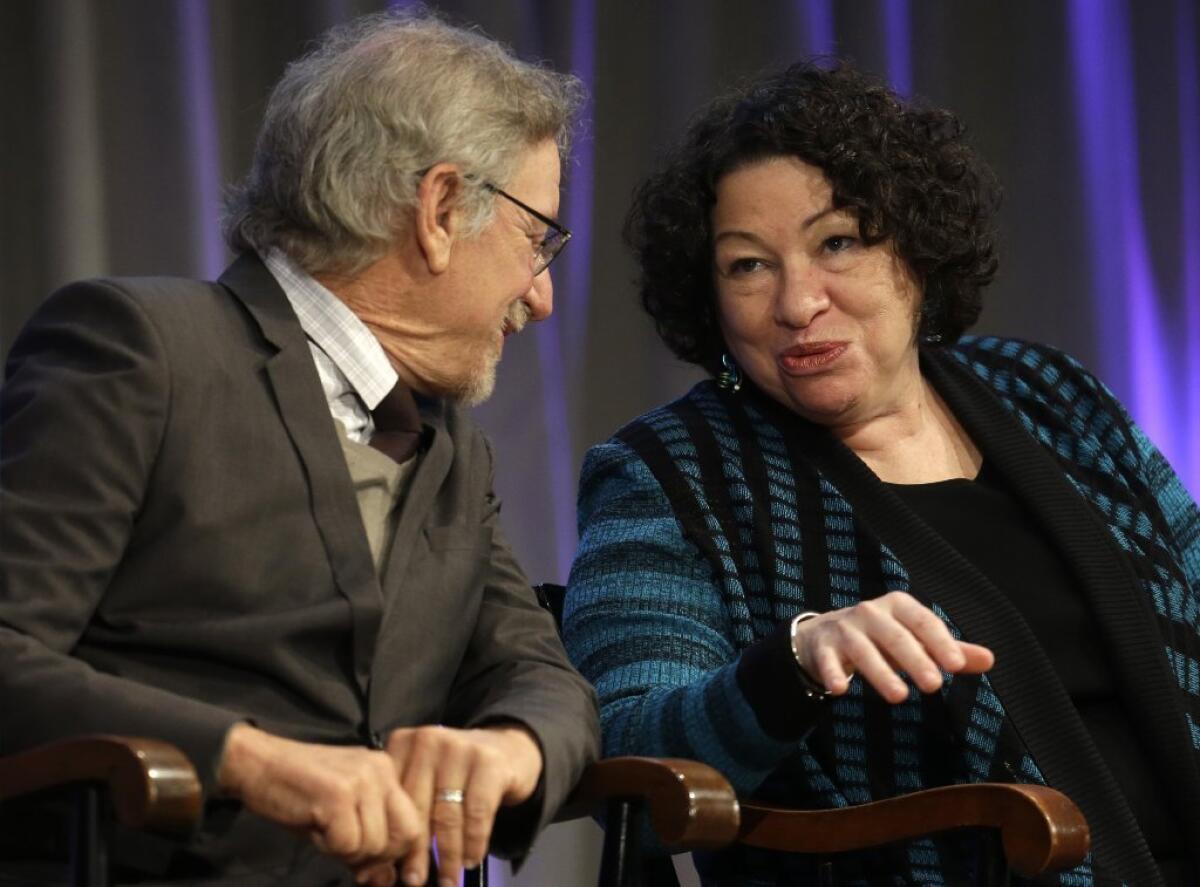Alabama killer case: When a jury says ‘life’ and a judge says ‘death’

- Share via
Two Supreme Court justices — Sonia Sotomayor and Stephen G. Breyer — are upset that the court won’t hear the appeal of an Alabama killer who was sentenced to death by a judge after a jury declined to impose the death penalty. They have lots of company. But I’m sympathetic to the justices who declined to take the case.
A jury voted 8 to 4 against the death sentence for Mario Dion Woodward, who was convicted of killing a police officer. But under Alabama law, a jury’s determination on the question of death is only advisory; a judge can disregard it, and the judge decided that Woodward should be executed.
In an opinion for herself and Breyer, Sotomayor noted that Alabama was an outlier in allowing judges to second-guess jury decisions. She also suggested that the judges (who are elected in Alabama) did so for political reasons. She cited one judge “who has overridden jury verdicts to impose the death penalty on six occasions [and] campaigned by running several advertisements voicing his support for capital punishment.”
I oppose capital punishment, and also believe (and have written) that state judges should be appointed by the governor, not elected. The argument that some judges in Alabama might play to the crowd is a good argument for what used to be called “merit selection” of judges. But it doesn’t translate into a violation of the 6th Amendment (fair trial) or 8th Amendment (cruel and unusual punishment).
And if the fact that judges are elected calls into question a decision to impose the death penalty, why doesn’t it also discredit their other sentences? Voters who like judges who sentence murderers to death also like judges who throw the book at rapists, bank robbers and drug dealers.
Sotomayor made another point: that allowing judges to decide on death sentences might contradict a series of recent decisions in which the court has said that any fact that can lead to an increased sentence must be proved to a jury beyond a reasonable doubt. She noted that the case in which the court announced this rule, Apprendi vs. New Jersey, was handed down in 2000, five years after the court upheld Alabama’s practice of allowing judges to override juries and impose the death penalty.
But the Apprendi decision and subsequent rulings expanding on it involved the finding of facts — such as whether a defendant had a racial motive, or killed his victim in an especially cruel way, or possessed a certain quantity of illegal drugs. In deciding whether to impose the death penalty, the judge or jury must balance aggravating factors against mitigating factors, a much more subjective process akin to the one judges engage in on a daily basis.
Finally, if it’s unconstitutional for a judge to sentence someone to death against the advice of a jury, wouldn’t it also be unconstitutional for a state to entrust the sentencing in capital cases to the judge alone? In 1995, when the court upheld Alabama’s two-tier sentencing system, Justice Sandra Day O’Connor confronted that problem of logic. She wrote: “The Constitution permits the trial judge, acting alone, to impose a capital sentence. It is thus not offended when a state further requires the sentencing judge to consider a jury’s recommendation and trusts the judge to give it the proper weight.”
Of the 32 states that allow capital punishment, 27 give the jury the final say on whether a defendant will be sentenced to life imprisonment rather than death. It’s the system I’d choose. But that doesn’t mean a state that decides to entrust judges with the decision instead is engaging in cruel and unusual punishment. Even if it’s Alabama.
ALSO:
More to Read
A cure for the common opinion
Get thought-provoking perspectives with our weekly newsletter.
You may occasionally receive promotional content from the Los Angeles Times.







